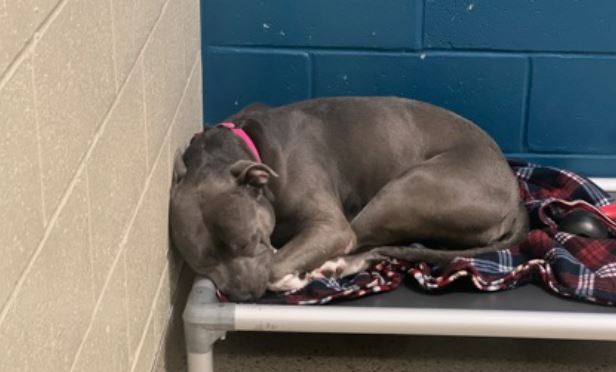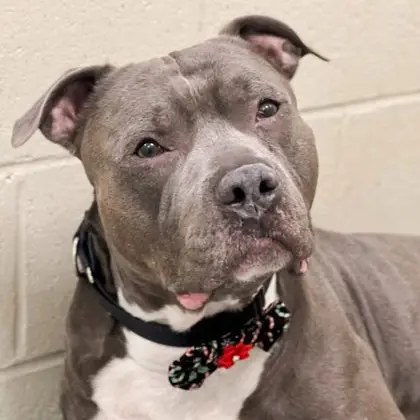Once a hopeful puppy, Major has come to represent grief and lost hope after living in a shelter for some time. His narrative serves as a moving reminder of the emotional toll extended stays at animal shelters may cause on our animal friends. The story of Major, whose relentless grief and hopelessness pierced the hearts of many, vividly depicts the hardships animals waiting for adoption experience and the great influence of prolonged isolation.
Major’s path started with optimism. Pulled from a trying circumstances, he arrived at the shelter unsure yet with hope. He was first full of promise, ready for love and the prospect of a new house. His soft demeanour and hopeful attitude affected the shelter staff as they knew it was just a matter of time until he would locate the deserving loving family.

Major’s predicament grew ever more hopeless as the days stretched into weeks, then months. Though it gave care and attention, the shelter battled limited space and finances, which made it difficult to provide the one-on-one interaction and enrichment Major needed. Major’s emotional health started to suffer from lack of frequent human contact and confinement to a kennel. His once-bright eyes darkened, and his hopeful attitude changed to one of subdued compliance.
Major’s emotional drop was evident. Curled in a corner of his kennel, he spent his days lost in a deep sense of grief rather than his once-energetic energy. Seeing his metamorphosis from a hopeful dog to one marked by hopelessness, the team became very moved. Though they tried their best to console him and give extra attention and care wherever they could, the emotional toll of his prolonged stay started to show up as tears and clearly lost hope.

Major’s story underwent a sea change when a volunteer, profoundly affected by his circumstances, chose to tell his tale more broadly. Major’s suffering was discovered by a larger audience via social media and neighbourhood networks. Many people related to his narrative, which emphasised the psychological and emotional toll prolonged shelter stays can inflict on animals. As the community started to change the story for Major, the outpouring of support and concern was both touching and motivating.
Major’s tale found a possible adoptive seeking a dog to give a second shot thanks to the more exposure. Inspired by Major’s emotional trip, this person chose to pay Major a visit at the shelter. The link was strong and instantaneous. Beyond Major’s present hopelessness, the adopter understood the strong bond that may develop and saw the beloved friend he could become.

Adoption was a mixed bag event. Major was bidding farewell to the only place he had known for many months, but he was also leaving the refuge that had been his home for so long. Though depressed to see him go, the shelter staff was ecstatic that Major would be getting the opportunity he so much needed. Tears mixed with celebration defined his leaving as everyone engaged prayed for the best in his new life.
Major started to mend from the emotional scars left by his protracted stay in a new house. His new owner gave him a fresh start with her loving surroundings and committed care. Major’s once-dim eyes started to glitter slowly but definitely, and his hopeful attitude was resurrected. The metamorphosis of a depressed canine into a lively and happy friend was evidence of animal resiliency and the strength of a loving environment.
Major’s narrative is a sobering reminder of the effects prolonged stays in shelters can have on animals. It emphasises the need of community support, smart adoption plans, and increased knowledge of the emotional requirements of shelter animals. Although Major’s path was full of difficulties, it finally came to a hopeful conclusion highlighting the great difference compassion and commitment can bring into our four-legged friends’ life.